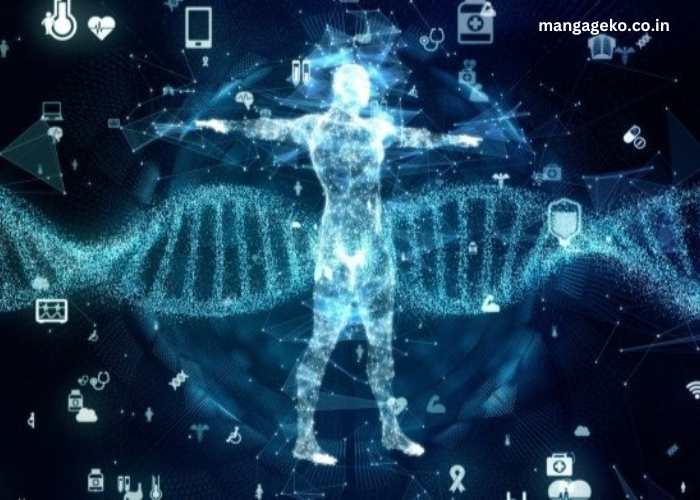As we move further into the 21st century, technology continues to evolve at an unprecedented rate. In 2025, several cutting-edge innovations are set to reshape industries, redefine operational norms, and drive unprecedented levels of efficiency and productivity. From artificial intelligence (AI) to next-generation automation, these innovations are altering the landscape of business and impacting how companies interact with consumers, manage data, and even deliver services.
These technological advancements are not only transforming the way businesses operate but also enhancing consumer experiences, improving safety, and boosting sustainability efforts. In this article, we’ll explore some of the most exciting tech innovations that are set to redefine industry standards in 2025 and beyond.
In 2025, technology is no longer just a tool for improving efficiency; it is a catalyst for transformation across various industries. Whether it’s through the rise of AI-powered automation, the advancement of 5G networks, or the integration of blockchain in supply chains, businesses are increasingly relying on technology to stay competitive in a rapidly changing market.
These innovations are helping companies achieve new levels of productivity, enhance customer experiences, and streamline operations. As we look ahead to the next few years, understanding how these technologies will reshape industries is crucial for staying ahead of the curve.
Key Points:
- AI and automation are revolutionizing business operations.
- 5G networks are driving faster communication and innovation.
- Blockchain is enhancing transparency and security in supply chains.
How Will Artificial Intelligence Transform Industries?
AI is one of the most transformative technologies of our time. In 2025, its applications are expected to revolutionize industries from healthcare to finance and retail.
AI-Powered Automation
One of the most significant ways AI will transform industries is through automation. AI systems can perform repetitive tasks more efficiently than humans, allowing businesses to save time and reduce costs. For instance, AI can automate customer service interactions through chatbots, reducing the need for human agents and improving response times.
Moreover, AI is expected to drive breakthroughs in fields like healthcare by enabling predictive analytics for better decision-making and patient care. In finance, AI will assist in detecting fraudulent activity and managing investments with greater accuracy.
Real-World Example
In retail, AI is already being used to personalize customer experiences. By analyzing consumer behavior, AI can suggest products, customize advertising, and even manage inventory based on demand predictions.
Reminder: AI-powered automation helps businesses reduce costs, improve efficiency, and provide better customer service.
How Are 5G Networks Reshaping Communication?
5G technology promises to revolutionize communication by offering faster, more reliable internet speeds. With 5G, industries are poised to experience significant improvements in connectivity, which will enable new applications and business models.
Faster, More Reliable Communication
5G’s ultra-fast data transfer speeds and low latency will empower industries such as healthcare, logistics, and manufacturing to improve their operations. In healthcare, 5G will facilitate remote surgeries and telemedicine, allowing doctors to perform procedures remotely with real-time feedback.
In logistics, 5G will enable the seamless integration of connected devices in the Internet of Things (IoT), helping companies track shipments and manage inventories in real-time.
Real-World Example
For autonomous vehicles, 5G will be crucial. It will enable self-driving cars to communicate with each other and with traffic systems in real time, improving safety and efficiency.
Reminder: 5G enables faster communication, enhances connectivity, and facilitates real-time data sharing.
Comparison Table: 5G vs. 4G
| Feature | 4G | 5G |
|---|---|---|
| Speed | Up to 1 Gbps | Up to 20 Gbps |
| Latency | 30-50 milliseconds | 1 millisecond or lower |
| Connection Density | Can support 100,000 devices/km² | Can support 1 million devices/km² |
| Applications | Streaming, video calls | Autonomous vehicles, IoT, AR/VR |
What Role Does Blockchain Play in Industry 2025?
Blockchain technology, often associated with cryptocurrencies, is set to play a major role in various industries by 2025. Its ability to create decentralized, transparent, and secure data systems makes it particularly useful in sectors like supply chain management, finance, and healthcare.
Blockchain in Supply Chains
One of the key uses of blockchain in 2025 will be in supply chain management. By providing a secure, immutable ledger of transactions, blockchain can enhance transparency and traceability across the entire supply chain, from raw materials to finished products.
For example, blockchain can help consumers trace the origin of food products, ensuring that they are sustainably sourced and free from contamination. In industries like pharmaceuticals, blockchain can help track the movement of drugs, preventing counterfeit products from entering the market.
Real-World Example
Walmart is already using blockchain technology to track the origin of food products. This allows the company to quickly trace products in the event of a contamination or recall, improving safety and efficiency.
How Is Virtual and Augmented Reality Impacting Industries?
Virtual Reality (VR) and Augmented Reality (AR) technologies are also expected to make major strides by 2025. These immersive technologies are not only changing entertainment but are also being integrated into industries like retail, real estate, and healthcare.
Enhancing Consumer Experiences
In retail, AR allows customers to virtually try on clothes or visualize how furniture will look in their homes before making a purchase. This enhances the shopping experience and reduces the chances of returns.
In real estate, VR is being used to give potential buyers virtual tours of properties, saving time and improving decision-making.
Real-World Example
In the automotive industry, companies like Tesla are already using VR to design car models and test drive simulations. By 2025, VR and AR will play an even bigger role in design, marketing, and customer engagement.
Reminder: AR and VR enhance customer experiences and streamline business operations.
Conclusion
The tech innovations emerging in 2025 will undoubtedly reshape industry standards across the globe. From AI-powered automation to the integration of 5G and blockchain, businesses must adapt to these changes in order to remain competitive. Companies that embrace these technologies will not only improve efficiency but will also create new opportunities for growth and development.
As we move further into the future, it is clear that technology will continue to play a central role in how businesses operate, interact with customers, and drive innovation. To stay ahead of the curve, organizations must remain agile and open to adopting new tech that can propel them toward success.
FAQ’s
- How will AI impact industries in 2025?
- AI will automate tasks, improve decision-making, enhance customer experiences, and create new efficiencies across various industries.
- What is the difference between 5G and 4G?
- 5G offers faster speeds, lower latency, and can support more devices compared to 4G, enabling innovations like autonomous vehicles and IoT.
- How will blockchain improve supply chain management?
- Blockchain will increase transparency, reduce fraud, and provide a secure way to track the movement of goods across supply chains.
- What industries are benefiting from AR and VR technology?
- Retail, real estate, automotive, and healthcare are among the industries benefiting from AR and VR for improved customer experiences and operations.
- Why is automation important for business efficiency in 2025?
- Automation powered by AI and robotics will streamline processes, reduce human error, and free up employees for more complex tasks, driving business growth.




